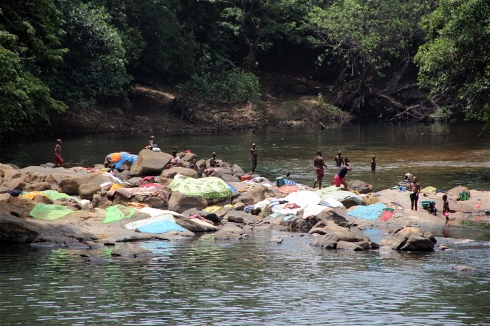IRIN by Jennifer Lazuta June 15, 2015
DAKAR, Senegal - It is a cruel irony that many of the top doctors and nurses in Guinea, Liberia and Sierra Leone will not be around to help rebuild their health systems in the wake of Ebola, having succumbed themselves to the virus.
 Many families in Guinea still rely on streams and lakes for their water needs.Photo: Jennifer Lazuta/IRIN
Many families in Guinea still rely on streams and lakes for their water needs.Photo: Jennifer Lazuta/IRIN For those that are, the biggest challenges are likely to be electricity, sanitation, and, most of all, water.
“How is it possible to build, or rebuild, as you may call it, a health institution or hospital without [access to] water, which serves as a major catalyst to run the facility?” asked Moses Tamba, a spokesperson for Liberia’s Ministry of Public Works. “It is not possible. You need water....”
Recent Comments